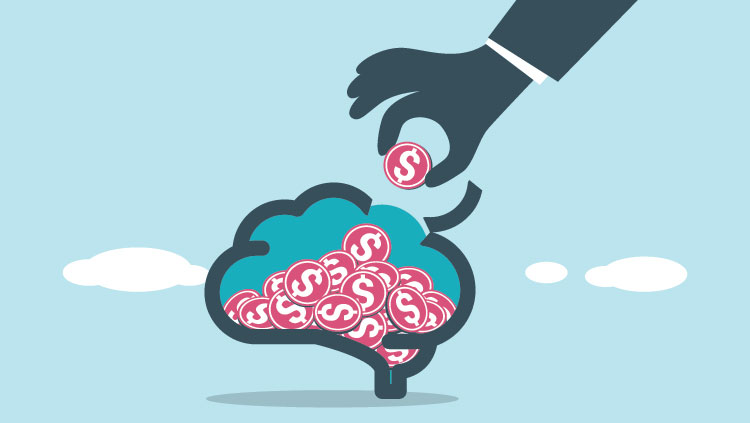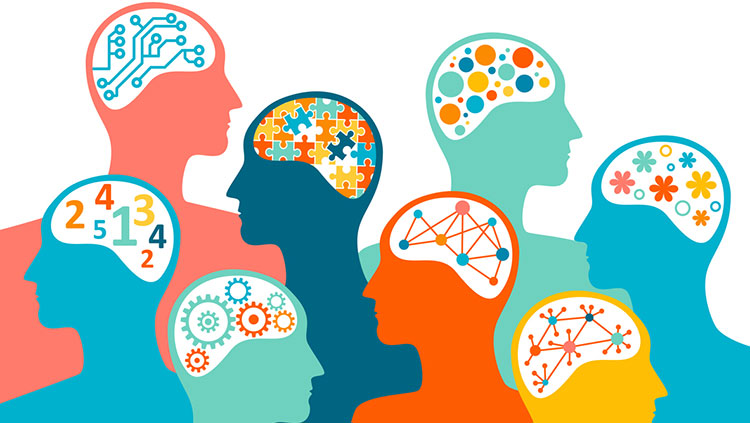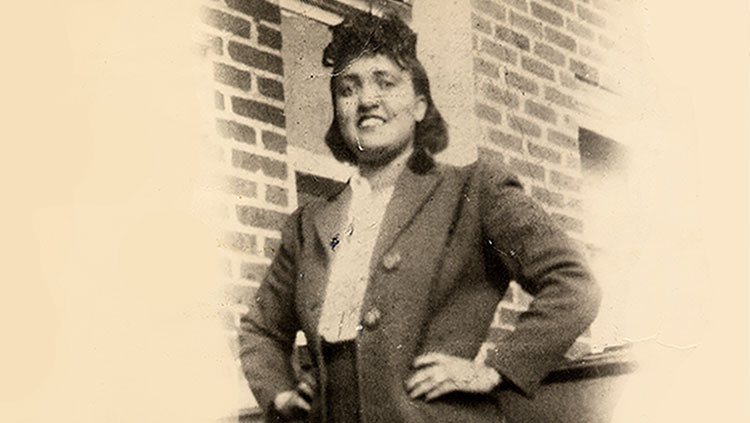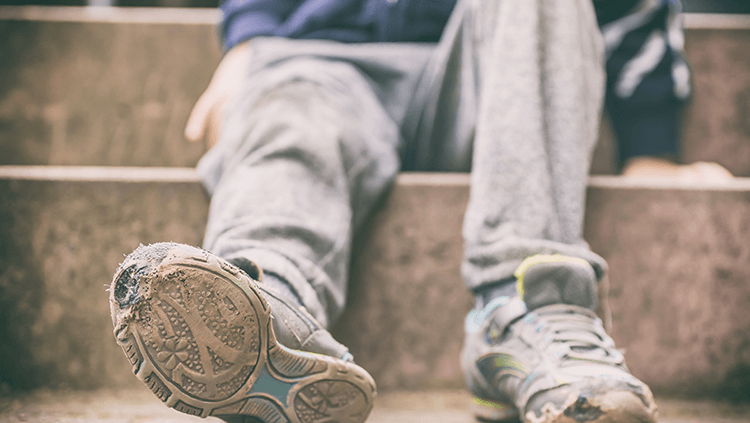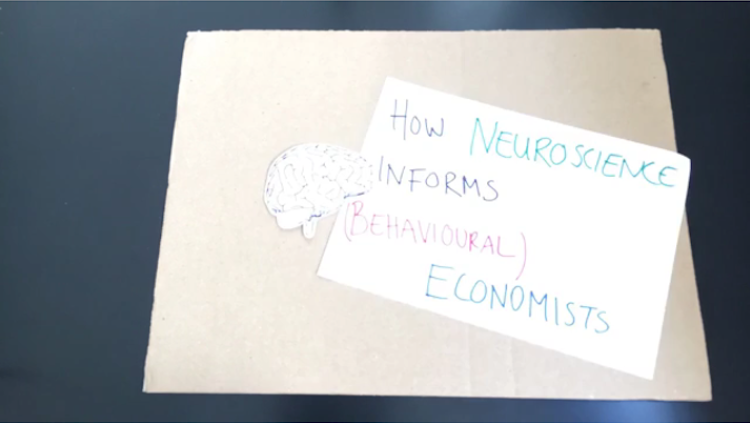Answering Your Questions About Solitary Confinement
- Published22 Mar 2019
- Source BrainFacts/SfN
Neuroscience is helping answer questions about solitary confinement and the effects it has on the brains of those who experience it, sometimes for months and even years. A neurobiologist, a physician, a lawyer, and an individual held in solitary for 29 years answer your questions about solitary confinement including:
- What does the deprivation of meaningful human touch do to a person?
- Is there permanent damage to the brain as a result of solitary confinement? Is it reversible?
- Is incarceration really the best way to handle deviant behavior?
- How do we impact the policies that still permit solitary confinement today?
This session is part of a recording of a panel on Solitary Confinement presented at Neuroscience 2018 for the Social Issues Roundtable.
Note: Stephanie Cacioppo, assistant professor of in the department of psychiatry and behavioral neuroscience at the University of Chicago, was also a presenter on this panel, however, she declined to have her talk distributed to the public.
CONTENT PROVIDED BY
BrainFacts/SfN
Transcript
Speaker 2: Thank you, all of you, for sharing your experience and all the work that you've done. So, I'm curious in one aspect from Dr. King's experience, or those who have been in solitary confinement, but also from the expert's point of view on the [inaudible] effect that he has. You've talked about what is going on during solitary confinement and soon, after a few months, what happens in the brain, and psychologically.
I was wondering about the very first moments after solitary confinement ends and ... So, for instance, the lack of social interaction and what it is like to be then again exposed and reintroduced into society and communicating with other people. Since you also said that there is no proof whether there's a permanent damage into the brain yet, how ... from your experience, how we felt like, but also from the experts to see what you think, biologically, might happen when you try to ... get exposed again to society.
Huda Akil: I think, also, there is clearly long-term damage. The question, I think, is whether it's reversible. What it would take to reverse it, and for whom, you know, because different people start with a different brain, the experiences are different. But I have no question in my mind that you can't live through that experience and come out with the same brain that you went in with. It has to be very ... and not in a good way. So, yeah.
Jules: One other anecdotal aspect of that. In the United States, many people are released from solitary confinement directly into the general population, onto the streets. In Colorado, somebody who was released from solitary confinement directly into the community, and within a few months killed the prison director. There's been a major movement in the United States because of that shooting, and other clear problems that people have being released from solitary confinement directly onto the streets, as Robert experienced, to say that that should never be. You know, people should never be kept in solitary confinement until the day of release.
Huda Akil: So, [Jules] set up a meeting in Pittsburgh about this topic, where there were a number of people there and I remember one young man telling me that he was literally still in his chains when somebody put him on a bus to send him home. I mean, just imagine that after years and years, that you are still in your chains and just somebody dumps you in the world.
If you read that Stanford study that Jules has referred to, which is more descriptive of people post-solitary, but in the general prison population. What is very striking is the sense of sensory overload that they seem to have. So, I think this idea that this disconnect that he mentioned, that you lower and lower because of lack of stimulation and then this huge sensory overload in a setup where, you know, you've ... and imagine after 30 years how much the world has changed.
So, that combination has to be a huge shock to the system, and I know from animal work that animals with a certain temperament find enrichment very stressful. So, if they're isolating you, put them in an enriched environment. You can hear them chirping in distress, and it takes time, and over time they start to like it in there and their anxiety drops. So, we can even show that in animal models.
Speaker 2: Thank you.
Speaker 1: Yes?
Speaker 5: I want to thank you all for having this panel, I thought it was fantastic. It was really informative as a young scientist, and it was also very enraging as a human being to know that this ... that we have such an exhaustive literature that shows us what's wrong with this system, and yet it is still legal and being used in every single state in this country. And so, my question for you is, what can we do both as scientists and intellectuals and also as human beings to make this change since we know what should be done, but the policy is lagging behind?
Robert King: I'm a firm believer, you know, and a philosopher of cause and effect. If you throw a pebble in a pond, you get ripples, so my point is this one. If we keep this conversation going, and we keep disseminating this type of knowledge into the public, we think that those pebbles that we're throwing in the pond will eventually create a ripple, and then from a ripple to a wave, and a wave to a tsunami.
This is what we are looking at. We're looking at incremental change, and that can and will come incrementally. Not trying to force it upon someone, you know, it takes a while for people to change, or to make the right decision. People who have been living a certain way for so long, it's kind of difficult for them to change their concept and mindset. The idea is to change the concept and mindset of how this thing operates, and we want to not so much as make it an operative, but an operative to where it's being operated now.
Speaker 7: Let me add that, I think we all have a social responsibility to make use of our expertise in the general public. The general public is, by and large, ignorant about these issues. Or they don't care. If someone's in prison, they must've done something wrong, and I'm not going to worry about it. So, we have, as a professional society, Brain Awareness Week, we have all kinds of opportunities to go out and talk to the public, talk to our elected officials, talk to prison officials, and explain just exactly what is going on by isolating people and make the case, which I think we can all now make. That this is inhumane, it really is cruel and unusual punishment, and it's got to be stopped.
Huda Akil: And, I want to add that neuroscience is in a unique position among the life sciences. We are at this fulcrum between the hard sciences and the social sciences. By virtue of the fact that we study the brain and behavior, we have this perspective on what goes right and what goes wrong in the course of human affairs. I really do hope that, as neuroscientists, we see as part of our job to take whatever issue we have unique understanding on.
Whether it's opioid crisis, or solitary confinement, or child development, or whatever, and find a way to inform the rest of the world how to think about it slightly differently, a little more objectively, less biased by beliefs and anger and whatever, and see if slowly we can build ... Whether you come at it from one angle or another, I think you can begin to change, you know, move the needle a little bit. I hope.
Jules: And I would just add that, one of the key problems in dealing with prisoners and prison issues, is that prisoners are so marginalized that they're basically not discussed. You know, they're put away and left alone. By society. So merely being here and merely raising this in the discussion in your circles would do what Robert says and create ripples of change.
I never thought when I talked to Michael four years ago and told him what I was doing that this would be the result, and every one of us can do something like that in some way. And then as a neuroscientist, I think for too often science has been viewed as sort of, and not only science, but academia in general, is viewed as an ivory tower that's sort of away from social problems. I think particularly neuroscience can play an active role in social problems, like this one. We need more research, we need more development, and you, hopefully, will be one person to play that role.
Speaker 5: Thank you.
Speaker 1: Thank you.
Speaker 8: Francis [inaudible], Liverpool.
There always seems to be an elephant in the room with these sorts of discussion on loneliness, and the Canadians apparently have a moose under the table. And that is touch. Now, the research myself and colleagues, who and I've spoke to [inaudible] about this and to Stephanie there's a C fiber in all social mammals that responds specifically to gentle, stroking touch. There's been a recent BBC [inaudible] study in the UK 55,000 people were interviewed. Nobody, I only found about it after it started, nobody talked about touch. To me, it's the common denominator cause everything we've heard today is this C fiber like all C fibers evolved the role to protect. So the C nociceptors clearly evolved to protect. The C, for lack of a better word [inaudible] protects. Babies that are neglected grow up to be autistic.
Elderly people basically who aren't touched don't do very well. You've only got to touch an old person, they'll eat more food. Gentle touch drives all these processes we've seen today. From Harlow's monkeys through to Meaney's rats and even your locust. It was touch that actually changed that solitary locust into a gregarious- sorry, grasshopper to locust. And also the neurotransmitter serotonin. You all saw the study with these ... octopuses that were given serotonin ecstasy ... they all started communicating. So anyone who's taken ecstasy, what do you all wanna do? You wanna touch, you want to socialize.
So if you've got the nerve fiber at one end, and the mood transmitter, serotonin at the other. So please, put touch into the frame. I encourage you.
Jules: I appreciate your comments and I just have two comments on that. One is that I recently did a case in Pennsylvania of ... a man named Arthur Johnson who'd spent 36 years in solitary, and when he got into the court room I went up and shook his hand. And he testified that was the first time he has touched anybody in any meaningful way for 36 years. But when we were looking around for expert witnesses, we found the fellow from the University of California, Berkeley who specialized in touch, and he gave the, in more detail, the talk that you just gave as an expert testimony.
And so we did think that touch was a key aspect of that. The deprivation of any human touch for that long a period of time, had to have a significant effect on people. And I just didn't have time get to that part of it.
Speaker 8: And this is the touch we all know about, it's not the touch you feel when you're touched ... touch is the wrong word really. This is an affective state mediated by this gentle stroking. We call it touch but it isn't, it's ... anyways, thank you very much
Jules: Physical contact ... meaningful physical contact [crosstalk]
Speaker 8: These nerve fibers evolved in all social mammals for a reason and it promotes physical contact, so it needs to be recognized, thank you.
Speaker 7: Okay thank you, so we haven't been thrown out yet so I think we'll take one more question and then I wanna make ... two more questions ... and then I wanna make a final comment.
Speaker 9: Well I would like to thank you, this has been a very meaningful panel and probably one of the best that I've attended in terms of its value both professionally and I think morally. I have a background in neuroscience and neuropsychology so I'm rusty on my signaling pathways but there are some ways that you could measure. Some people have had previous neuropsychological assessment where you can do pre- and post-, but there are also measures like olfaction with the University of Pennsylvania smell test, which can be done by lay people and scored elsewhere.
There's the IVA-2 which is a computerized test which has built in effort measures and you can very quickly within 16 minutes compare someone to a neurologically impaired population. There are metrics, there's a barona equation, there's word reading proxy measures for IQ. And if you look at this global atrophy you would expect to see global involvement of cognition.
So I think it's something where I would love to say this is where you could reach across the clinical neuroscience gap because there's too much to try and focus on so I've just been doing bad things to people. But I at least can speak to people who do bad things to animals and study signaling pathways and we can do something useful.
And I'm not alone. So I would say hopefully use this as an opportunity, so thank you.
Speaker 7: Thank you. Final comment ... question.
Speaker 10: I'm a second year PHD student at Columbia studying neuropsychopharmacology but I also was incarcerated in a supermax facility in Wisconsin and so I was really excited to hear about the panel, but my enthusiasm was kinda dampened when I heard that it was initially rejected which ... I'm just not very happy about that, but I'm really glad that they went through with it.
Like the previous person who asked a question to me this has been one of the best panels, one of the most informative one, and one of the most emotionally stimulating panels. And just to be able to come at it not just from a really narrow neuroscience perspective, but bringing in activists and people who have experienced it.
But I'm thinking about historically how we think about punishment, and how at one point we chopped off peoples arms, and we now look at that as inhumane. And the silent prisons, and were like, oh that's inhumane. And now we have solitary confinement and people are like ... it's easy ... I would say it's easy for people to get on board and say that this is inhumane, and I'm just asking people to take it a step further like when you were talking about the study and you were talking about different ... they compared different levels of isolation and that it was worse the people who were isolated more.
And I'm thinking about like, what about if we have a control general population and we compare the isolation even though it's less for the maximum security, but that it's still pretty severe detrimental effects on neurobiology, behavior, psychological distress.
So really what I'm asking people to do is yes solitary confinement, definitely horrible, but it may be imprisonment in itself that maybe we need to as neuroscientists, psychologists, we should able to do a job better where we don't look at that as the best way to deal with deviant behavior.
Speaker 7: Thank you. That's uh ...
Huda Akil: I mean, the question of who the right ... the question of how to do the study correctly, and I appreciated the previous comment about other measures. It doesn't have to be neuroimaging, it doesn't have to be biochemistry, the marks ... the physiological marks of problems. The big challenge is whether you can do it longitudinally, whether you can show that something has really deteriorated more than expected with age, with stress, et cetera.
So how do you design the appropriate experiment and not have somebody dismiss it and say “yeah, but you haven't thought of this, and this is the reason for it”.
They came that way to begin with. So there is some thought to be given. So there is [inaudible] the general argument that isolating someone for that is bad for the brain in general.
And then proving it specifically, finding exactly the right parameters to get the most believable answer. The last thing I would say is if you could reverse or prevent some of it ... so Let's say the touch example. What if there was something to touch, or a small furry poodle ... does that make a difference in solitary confinement? I mean, I don't know. But if you could reverse it or partially alleviate it, it would actually go a long way to show some cause and effect.
Speaker 10: I have a follow up question just to that. So like, I'm not too familiar with the new brain initiative, the longitudinal study that's supposed to be the largest longitudinal study of adolescents to date. Is anyone else familiar with this?
Huda Akil: ABC or?
Speaker 10: ABC, yeah. And so I'm wondering what happens if as you're studying them over time, they happen to go to prison.
Huda Akil: I don't know if that's a condition that they have [inaudible] and is large enough for that.
Jules: I have a couple responses to the question. One is the fact that was rejected first and then got accepted, to me is an inspiring example of how if you keep at it, you'll get somewhere. And that's where social change really takes place, that's the key attitude that I think you need, is persistence.
And secondly, on the study of the hypertension. The reason we chose the maximum security prisoners who were in fairly draconian situation also, is because their background was almost identical to the people in the supermax. So if we had chosen a minimal security prison, it could have easily dismissed it as [inaudible]. So it's very important to figure out how to choose your subjects on this ...
I'll stop there.
Richard Smeyne: And I should add in terms of when we set up this experiment and we were putting in grant applications one of the comments came back and asked us to add a group and that was animals and small cages but four of them. So, they said could that be general pop?
So you kind of think, so where they have social interactions but now reduced space, and to ask that as a group. And that's something that we have to consider because I think it's a really important way to tease out some of the effects of isolation versus space confinement and the like and the changes cause perhaps maybe motor cortical changes are because they're in a reduced amount of motor activity.
We have to ask this kind of question.
Jules: One last comment based on your question and Richard's comment, which is that, now that most of our plaintiffs ... over a thousand of them, are out in general population, it makes us consider what is general population in California? And it often seems to be the case that general population means you get out of your cell two hours a day. Which still seems incredibly draconian and we're fighting that, and that's another uphill battle.
That raises the broad question of what about prison conditions in general, as opposed to just solitary confinement? And the general harshness and the anti-rehabilitation attitude of most prisons?
Also In Law, Economics & Ethics
Trending
Popular articles on BrainFacts.org


